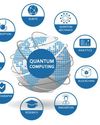
Machine learning (ML) and DevOps are two critical fields that have been increasingly converging in recent years. DevOps refers to the specialised set of practices that combine software development (Dev) and IT operations (Ops) to shorten the systems development life cycle and provide continuous delivery with high software quality. When applied to ML, this convergence is often referred to as ‘MLOps’ (machine learning operations). MLOps aims to bring the principles of DevOps to the world of machine learning, facilitating the seamless integration of ML models into production environments while ensuring reliability, scalability, and reproducibility.
Key advantages of implementing MLOps
Using MLOps offers several advantages that significantly improve the development, deployment and management of machine learning models. Through streamlined processes and enhanced reproducibility, MLOps empowers organisations to harness their full potential.
Faster development cycles: MLOps automates and streamlines the end-to-end machine learning life cycle, including model training, testing and deployment. This results in faster development cycles, allowing data scientists and engineers to iterate and improve models more rapidly.
Improved model quality: MLOps promotes continuous integration and continuous deployment (CI/CD) practices for machine learning models. As a result, models can be tested thoroughly and deployed with greater reliability, leading to higher model quality and performance.
Reduced human errors: Automation in MLOps reduces the manual intervention required in the model deployment process, minimising the chances of human errors and ensuring consistency in deployments.
この記事は Open Source For You の September 2023 版に掲載されています。
7 日間の Magzter GOLD 無料トライアルを開始して、何千もの厳選されたプレミアム ストーリー、9,000 以上の雑誌や新聞にアクセスしてください。
すでに購読者です ? サインイン
この記事は Open Source For You の September 2023 版に掲載されています。
7 日間の Magzter GOLD 無料トライアルを開始して、何千もの厳選されたプレミアム ストーリー、9,000 以上の雑誌や新聞にアクセスしてください。
すでに購読者です? サインイン

Linux Foundation launches LF India to foster open source innovation and support in India
The Linux Foundation, a nonprofit organisation dedicated to driving innovation through open source, has announced the launch of LF India.

Red Hat launches Ansible Automation Platform Service on AWS
Red Hat, Inc., has announced the general availability of the Red Hat Ansible Automation Platform Service on Amazon Web Services (AWS) as a managed offering available through AWS Marketplace.

Fedora Asahi Remix 41 is now generally available
The Fedora and Asahi Linux projects have announced the general availability of Fedora Asahi Remix 41, the latest version of this distribution tailored for Apple Silicon Macs.

SageMath: A Second Glance at Cybersecurity
The eighth article in the series on SageMath explores a classical encryption scheme called the Rail Fence cipher and introduces the concept of symmetric-key encryption.

Building Cross-Platform Mobile Apps with lonic
Mobile apps are an intrinsic part of daily life today we use them to order food, groceries, taxis, and more. As these apps need to work across platforms, developers are focusing on cross-platform app development so that they code only once to create apps that function on multiple platforms. lonic is a framework that can help developers build apps faster than with native app development, while saving them time and money. Let’s learn how to install and deploy it.

Open Source AI Frameworks: Integrating AI with lot
Open source Al helps loT devices learn, adapt, and automate actions based on real-time data, improving convenience and security. Here’s an overview of six key open source Al frameworks that help integrate Al with loT, and the challenges they face.

Open Source loT: A Primer for Everyone
Open source IoT platforms promise to play a central role in shaping the future, making it possible for more people and businesses to benefit from smarter, more efficient solutions. We look at a brief history of this tech and explore emerging trends.

Using Open Source and Blockchain to Build Decentralised loT Networks
Explore how blockchain is being integrated with loT to create decentralised networks. Find out how leading open source projects like IOTA and Streamr use blockchain to ensure data integrity, security, and privacy in loT ecosystems.

Internet of Things: Running Language Models on Edge Devices
Let’s delve into the technical aspects, challenges, and benefits of deploying language models on edge/loT devices.

How Open Source is Making Quantum Computing Accessible to Everyone
Open source initiatives are breaking down the barriers to quantum computing, making it accessible to everyone. Explore what quantum computing is, the challenges of traditional adoption, how open source platforms are democratising the technology, and how you can get started in this exciting domain.